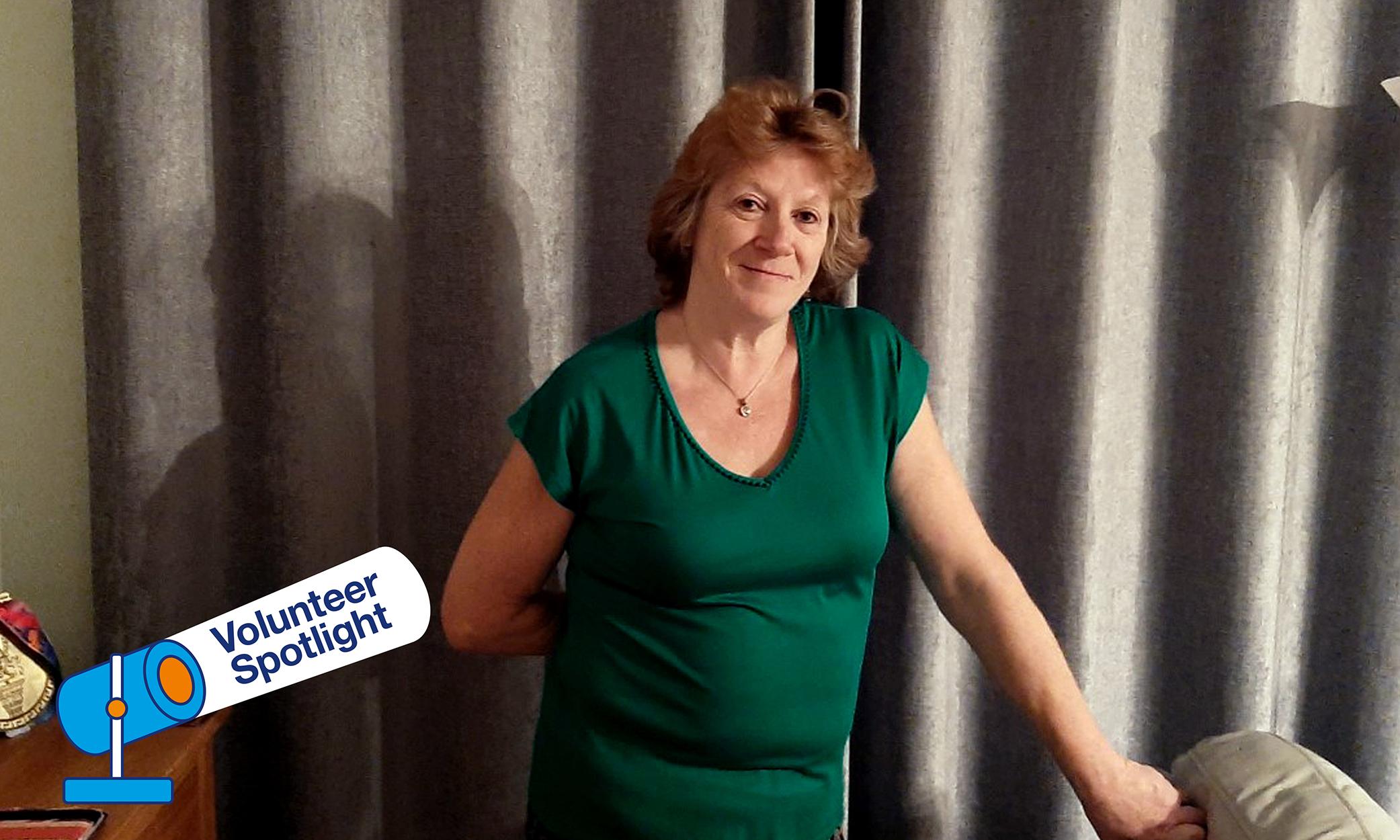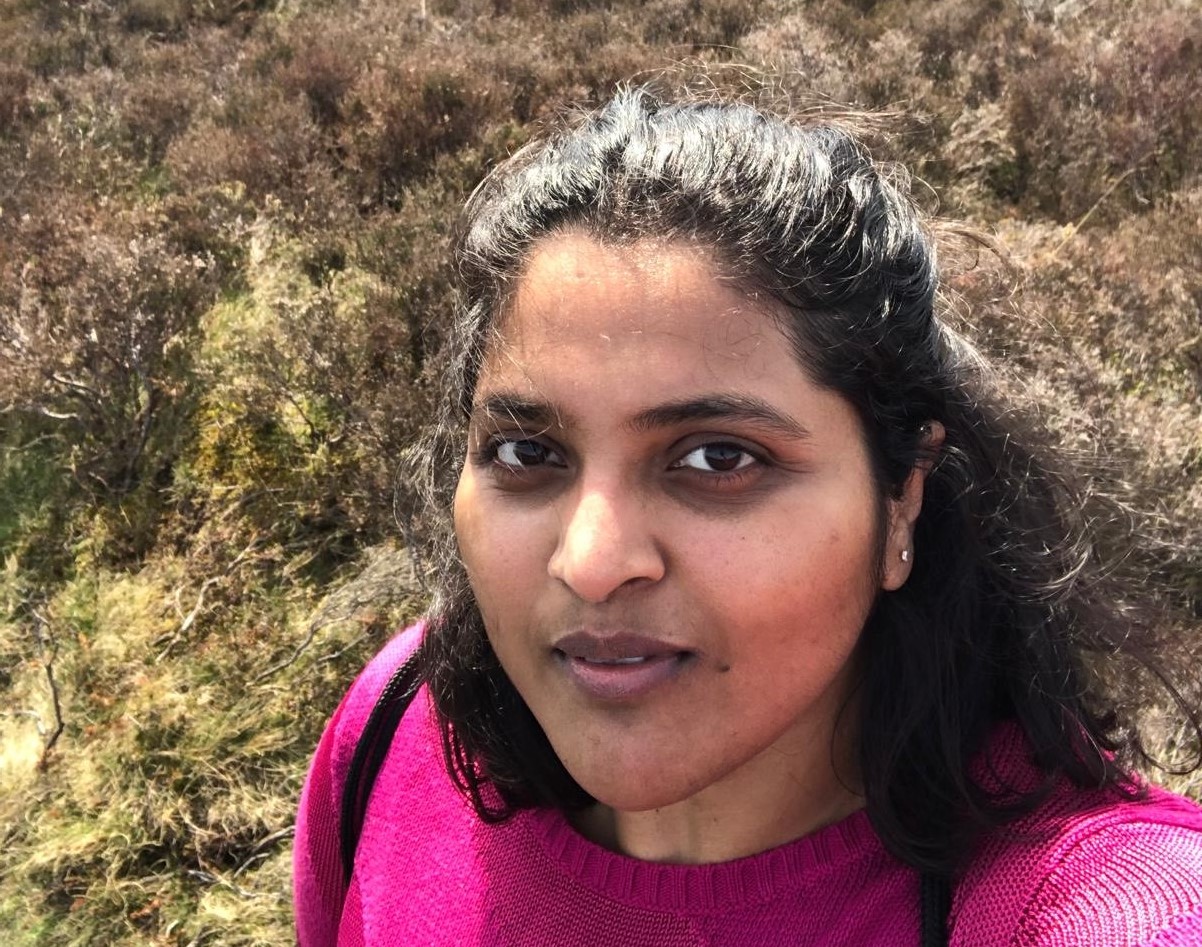
Angie Whitmarsh
Being able to help people and explain so they have a better understanding of their condition, gives me the greatest pleasure
Meet our Volunteer Spotlight for March 2020, Angie Whitmarsh
Angie is the Chair of her local Southampton & District group. She also works with Clinical Commissioning Groups (CCGs) in her area to improve local services and gives countless talks about her experience of living with type 2 diabetes.
Discovering the local group
“I had gestational diabetes with both my pregnancies in the early 1990's, but my healthcare team weren’t too concerned. Then in 2005, I had been back and forth to the GP for over a year before I was officially diagnosed with type 2. I found it hard to accept my diagnosis at first and I was angry when I had to go onto medication and then, later, onto insulin.
A month before I retired in 2010, I got a letter from Diabetes UK saying they were setting up a new local group in Southampton. I went to the first meeting to find out more. Before I knew it, I’d been voted in as secretary for the group!”
Talking to other people and raising awareness about diabetes helped Angie to be more accepting of her condition. She now feels in control of her diabetes and understands a lot more about it. She wanted to help other people to feel the same. “Many of our group members can be confused by the information their doctor gives them. Being able to help people and explain so they have a better understanding of their condition, gives me the greatest pleasure.”
Angie and her fellow committee members meet to decide what each meeting will focus on. She then approaches local healthcare professionals to ask if they could come and talk to the group.
Two years ago the Southampton & District group adopted a local project looking at type 2 diabetes and links with Alzheimer’s. The researcher is always keen to come and update them about how the project is going and the group are really interested and invested in the research.
Angie was given an inspire award in 2017 for her work in supporting others with diabetes which was a proud moment for her. Another moment that stands out for Angie was going on Breakfast TV a few years ago to talk about her experience of living with diabetes. She’s also been on local radio to promote the local group in the community.
Being a speaker volunteer
Giving talks about her condition and experience helped Angie to come to terms with her diabetes.
Angie speaks at local temples and at various events in her community. “I find giving the talks very rewarding as the people in those communities are so grateful. They’re not so much worried about themselves but concerned about their family’s risk of developing type 2 diabetes. If you talk to them about their children, they’re more likely to be engaged and take the messages on board.”
Angie is a member of the Southampton Communication Engagement Group through the local CCG. “The Diabetes Specialist Nurses run diabetes education courses three times a month. I go along to every course for ten minutes and talk about my diabetes journey, the local group and the services and support that Diabetes UK provides.”
For the last couple of years, Angie and members of her group have helped to support Southampton University and their MSc course in Diabetes for healthcare professionals. They invite people with all types of diabetes to talk about what it’s like to live with the conditions. She also speaks to them about the best way to talk to patients so that they’re engaged to look after their health.
Angie has also spoken about her experience at Diabetes UK staff induction days. “The staff are always really grateful and engaged to find out the bigger picture. Some of the staff are not working in teams where they’d necessary meet people with diabetes and have the opportunity to ask questions.”
Improving local services
For the last eight years, Angie has been a CCG patient representative. Angie is keen to take her work with the CCGs back to the group and provide a link. “It’s Important there’s a range of views represented and that people can feed in.”
Angie came up with an idea to have a feedback box at group meetings where group members can write down both positive and negative experiences with local services, put their comments in the box and this can be given to CCGs. “Although there are negative experiences there, some of the comments are really positive. Healthcare providers are often so pressed for time and with limited budgets, it’s nice for them to get to read that patients have had a positive experience using their service.”
Angie is part of Diabetes Voices and has gone to parliament for various campaign launches. “You feel you’re getting your voice right to the heart of things. It’s helped me to better engage my MP in the topic of diabetes education and its importance.”
Angie is an advocate for diabetes education because she wasn’t offered it when she was diagnosed. “I saw a notice in my GP survey advertising a diabetes education course and spoke to a nurse about it. She said she didn’t think I’d find it useful as I knew a lot about diabetes already. That might have been true, but you can’t replicate the peer group experience that you have on diabetes education courses. You don’t have to speak, but someone might say something that hits a note with you.”
Looking to the future – what’s next?
I’ve always said that if my circumstances change and I can’t do as much volunteering, the group would be the last thing I stop helping with. The gratitude you receive and knowing you’re making a difference keeps you going. You don’t do it for the thanks but when someone really appreciates what you’re doing, you feel you don’t mind going out and doing it again.”
If Angie's story has inspired you to get involved, please take a look at how you could volunteer with us.

